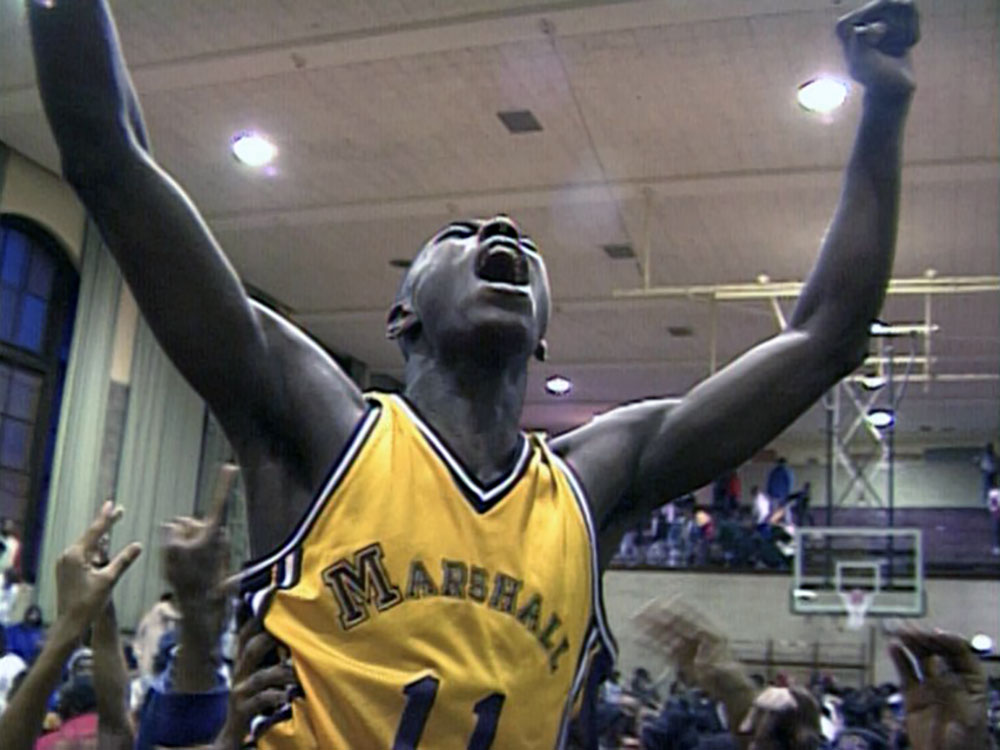
Filmmakers Steve James and Peter Gilbert started with the idea of making a 30 minute TV show about kids playing basketball at an urban playground. Instead they got pulled into the lives of two remarkable families and you will be too by the astounding 1994 documentary Hoop Dreams.
The film follows two African-American basketball players for five years as they grow from boys to men in Chicago. Both have been scooped up as potential basketball stars by an ambitious coach at a white suburban high school (Is this an opportunity or just exploitation? The film doesn’t flinch from this question.). When one of them, Arthur Agee, doesn’t do well academically (or is it just that his white coach thought he wasn’t a good enough player?) he is sent back to his local high school where his sports career prospers in new ways. The other, William Gates, fares better in the burbs at first but then his life takes some turns that I will not ruin for you by telegraphing them.

Among the things that amaze about Hoop Dreams is the access everyone gave to the filmmakers. The boys themselves, the coaches and their friends are all remarkably candid in the interviews. And the Agee and Gates families open up their personal lives to an almost unbelievable extent. The amount of intimacy they let the viewer have at some of the most critical moments of their lives is a true gift.
The other impressive thing about Hoop Dreams is that despite an almost three hour running time (edited down from a reported more than 250 hours of footage!) it holds your interest at every moment. Personally, I tend to be pretty hard on movies that run more than two hours without an exceptional reason. Here, I was riveted throughout and indeed would have loved more.
Hoop Dreams is sometimes referred to as a great film about inner-city existence or low-income Black Americans. Yes, it is those wonderful things but it’s also more than that, it’s a film about life, family and growing up with which anyone with a heart and a mind can connect emotionally. That’s why it’s not just one of best documentaries of my lifetime; it’s a great work of art.
Finally, just as a comment on inner city life, which this film so well captures, it is quite sad that a number of people in this film have been murdered since the film’s release, including William’s older brother and Arthur’s father-in-law.
p.s. Even some fans of this film sometimes underestimate its worth. They are angry that it wasn’t nominated for a best documentary Oscar. That was indeed an outrage, but in a year when Forrest Gump won Best Picture, the nominators in that category should have hung their heads too. Props to Siskel and Ebert for using their platform to boost this movie and to blast the Academy for their disgraceful decision.
